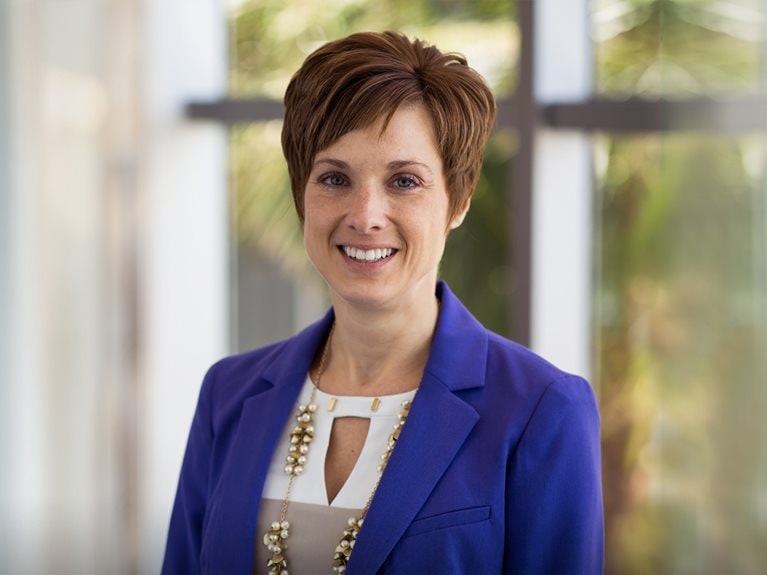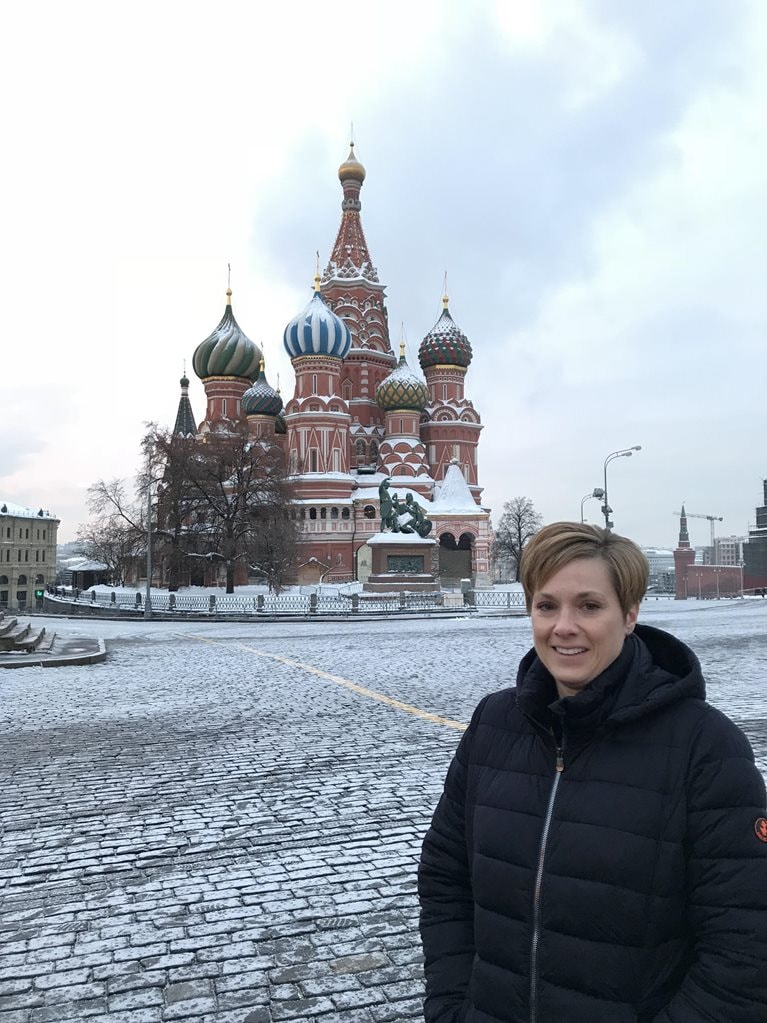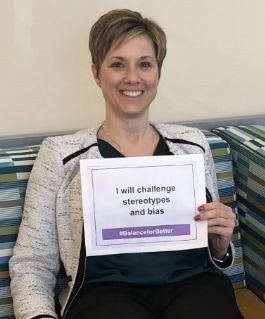Trish is a partner in our Operations practice, based in Chicago. In November, she’ll give advice to MAKERS members on how to make a significant and actionable pledge toward gender parity – something all board members will do at the annual MAKERS Conference in LA in February 2020. We sat down with Trish to learn more about her passion for diversity & inclusion and her practical pledge-proffering tips. Here’s what she shared:
Starting out

I worked in the automobile industry for thirteen years before I started at Ross School of Business at the University of Michigan. I was ready to make a full-on career change. As I considered my options, my top goal was to find an employer that fit my ethics and values. I remember walking into an on-campus presentation for McKinsey, focused on the firm’s work in operations (e.g., supply chain management, digital manufacturing, service operations). I took two things away:
- I can still do real operations-related work as a consultant
- McKinsey is a values-oriented firm. The speakers shared a slide outlining McKinsey’s values, and they aligned with my preferences and beliefs.
I had more than 30 conversations as I interviewed and considered joining McKinsey. I heard about experiences and stories that proved the values described during that Ross presentation were actually the way the place ran. When I was convinced I could do the work I want to do in the way I want to do it with people who shared my values, I was sold. Now, I stay because there’s nowhere else like McKinsey.
One major shift
Several years into my McKinsey journey, after I was elected partner, I decided to transfer to our Santiago office. I was ready for a change, and so many of the clients I was serving were international. I wanted to see how operations were managed outside of the U.S. and I wanted to be pushed outside of my cultural comfort zone.
When I arrived, our offices in Spanish-speaking Latin America had not yet elected a female partner. I was the only one who existed there. By circumstance and passion, I took leadership of women in the region. It was a long journey, but in my four years there, I saw many leaders shift their mentality. Around the time I returned to the States, I witnessed something incredible: one of the male senior partners I had coached started to support major policy changes, including increasing parental leave in the region, and individual women in creative ways. There was one female engagement manager who came to him saying she wanted to work 60% and leave the office every day at 3pm. He made it happen. She’s up for promotion now, and two other women are up for election to partner in that office this year.
Doubling down on Diversity & Inclusion
My experience in Spanish-speaking Latin America filled me with passion for driving gender parity within our firm and pride for how much I’d helped accomplish. I wanted to make that a bigger part of my life – so much so that I stepped away from client service for 18 months to run our internal effort called All In. No other role in the firm would have enticed me to leave client work temporarily; this was a once-in-a-lifetime opportunity.
My role was two-fold: establish priorities on what the firm should do to better support women globally and assist local offices and practices in launching their own, customized programs. There were three areas we focused on most:
- Sponsorship – we pushed really hard to define what good sponsorship looks like. We taught people how it was different from mentorship - sponsors create opportunities for you where mentors offer counsel- and articulated its importance. We coached senior-tenured colleagues on how to sponsor effectively and junior-tenured folks on how to find and use sponsors. We extended some of this approach/methodology to hiring more senior women into the firm.
- Unconscious bias – we made removing unconscious bias from our interviews and evaluation committees a top priority. We hired an external consultancy to read internal memos, listen into mentorship and evaluative conversations, train evaluators and coach women on how to react when someone gives them gender-typical feedback. Now, every single one of our interviewers and formal evaluators undergoes unconscious bias training and it’s making a difference.
- Practical tools – along the way, we carefully codified everything into a tool kit for our colleagues around the world. Some elements were focused on women; others were meant for leaders; and there is a section for broader offices and practices. All of its customizable and incredibly pragmatic.

Living my advice
One of the small but incredibly powerful changes I’ve made in my own life involves keeping a list. Women (and men) at McKinsey frequently approach me informally, saying they’d like to work with me. Maybe on D&I, maybe on operations – it depends. Either way, I write down their names. Then, when I’m looking for someone to staff an engagement team or conduct a knowledge-building effort, I start by looking at the names on that list.

For example, one woman in the Chicago office shared a latte with me several months ago. She shared her background and interests. I added her to my list. A few months ago, I was looking for a more senior-tenured associate who was ready to transition into the engagement manager role. She fit the bill. I called her and said, "if you’d like to join our team, you’re my first choice.” She joined us, completed the engagement excellently, and is now gearing up for phase two with our clients. She is also up for promotion quite soon.
Learning all the time
From my time in South America and leading our All In initiative, I learned one very important thing about diversity and inclusion. You have to meet people where they are. Not everyone in a room is starting at the same place – personally or as an organization. You have to be willing and open enough to start the discussion at their level – even if it’s miles away from where you want them to be. For example, I led a discussion once in which a woman shared that some of her male counterparts ranked women they saw when they were all out at a bar. She shared how uncomfortable that made her feel. A male in the room chimed in, explaining that he didn’t see the problem. You could literally feel the hairs on the back of everyone else’s necks prickle. Another female in the room explained honestly, and without judgement, why that behavior would have bothered her. The dialogue continued. He learned something he wouldn’t have if felt he couldn’t ask the question. That’s what we must do to move inclusion forward: create safe places in which people can ask questions openly in order to learn.
Issuing a practical pledge
This concept of meeting individuals and organizations where they are and building upon that place, will be one of the things I address with MAKERS board members in November. I’m leading a session about writing an effective, significant, and pragmatic pledge. I’ll guide participants to make their statements simple, measurable, and practical. I can’t wait to work with this amazing group on such an important topic.